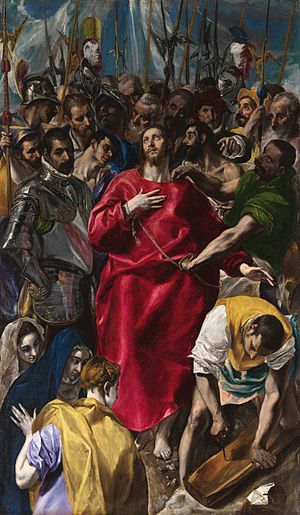Here’s another interesting post by my friend Larry Hurtado—- see what you think. BW3
Martyrs/Martyrdom in Early Christianity: Paul Middleton’s Contributions
by larryhurtado
It’s always a pleasure to see one’s former PhD students making their own contributions to scholarship, and one of my most productive former students in Paul Middleton, now Professor of New Testament and Early Christianity in the University of Chester. From his PhD thesis completed here in Edinburgh onward (published as Radical Martyrdom and Cosmic Conflict in Early Christianity, T & T Clark, 2006), Middleton has steadily solidified his place as one of the leading scholars on the subject of early Christian martyrdom. He has produced a string of publications, the most recent of which is this volume: The Violence of the Lamb: Martyrs as Agents of Divine Judgement in the Book of Revelation (London: T&T Clark, 2018). The publisher’s online catalog description is here.
The particular emphasis and contribution that Middleton has pushed over these publications is that early Christian martyrdom wasn’t simply a passive or unfortunate passive act, with martyrs simply victims. Instead, they saw themselves as actively engaged in the struggle against evil, acting as agents of God, even soldiers in a cosmic struggle. The Roman authorities weren’t really so keen on killing Christians as they were to lead Christians back into the social fold from what the authorities regarded as a bizarre and socially disruptive stance. In short, when Christians were on trial, the aim of the authorities was to get them to recant. This is evident in all the reports of interrogations, from Pliny’s famous letter to Trajan on through the early Christian accounts of martyrdom.
Christians understood this well, and so refusing to recant was their only option. This meant death. But in their eyes it also meant a victory over the efforts of the Roman authorities (whom Christians regarded as tools of Satan). In short, refusing to recant, effectively forcing the authorities to kill them, meant that the martyrs had succeeded in maintaining their faith, and thereby in defeating the aims of the devil.
In his latest book, Middleton argues that Revelation pictures a looming situation in which the only option for Christians will be such a martyr’s death. In taking this stance, Middleton disagrees with scholars of Revelation who contend that the author didn’t actually expect that every Christian would be a martyr. It’s now accepted that at whatever time Revelation was written there wasn’t actually a widespread incidence of Christian martyrdom. So the author of Revelation is portraying what he sees as the looming future situation in which Christians will have to choose between “the Beast” (which Middleton takes as the Emperor cult) and Christ “the Lamb”.
This book also focuses commendably on the portrayal of Jesus in Revelation. He argues that the dual imagery of Lion and Lamb is not contradictory but complementary expressions of the author’s view of Christ. And Middleton shows how in Revelation the death of Christ functions as the model and inspiration for believers facing the prospect of arraignment and execution.













